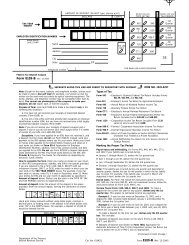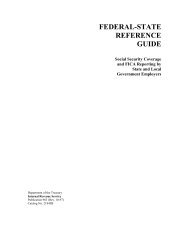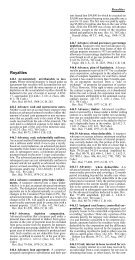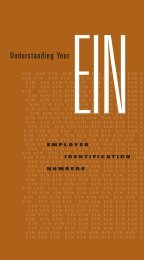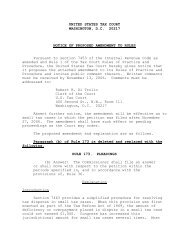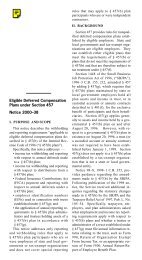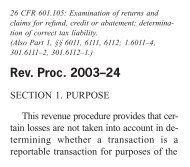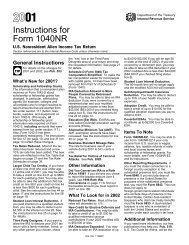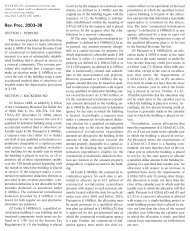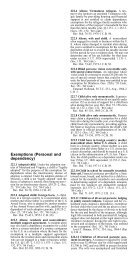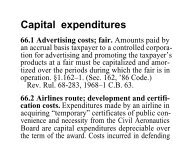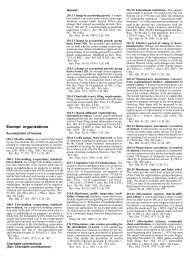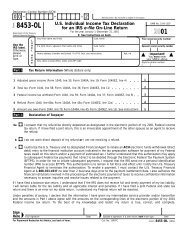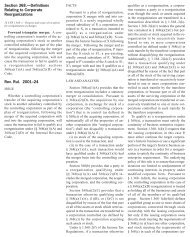Auto Dealerships - Audit Technique Guide - Uncle Fed's Tax*Board
Auto Dealerships - Audit Technique Guide - Uncle Fed's Tax*Board
Auto Dealerships - Audit Technique Guide - Uncle Fed's Tax*Board
Create successful ePaper yourself
Turn your PDF publications into a flip-book with our unique Google optimized e-Paper software.
administered by the fronting company and/or the automobile dealer. The fronting company<br />
retains a fee for its services.<br />
For each extended service contract sold by the automobile dealer, the dealer remits to the fronting<br />
company a "premium" from which the fronting company derives the fees for its services. The<br />
balance is remitted to the related reinsurance company. The fronting company administers the<br />
extended service contracts and charges the reinsurance company for the cost of all approved<br />
repairs. The reinsurance company’s tax return is filed under the insurance company provisions of<br />
the Internal Revenue Code.<br />
When an automobile dealer is the party obligated to pay for repairs under an extended service<br />
contract, the risk of loss rests on the automobile dealer. If the dealer purchases insurance<br />
coverage from the fronting company who then reinsures most, if not all, of the risk with the<br />
related reinsurance company, the risk of loss then rests with the reinsurance company. However,<br />
the risk remains the burden of the person who owns or controls both the automobile dealer and<br />
the reinsurance company.<br />
There is no economic shifting or distributing of risks of loss with respect to the risks carried or<br />
retained by the reinsurance company. The economic consequence of the reinsurance arrangement<br />
is that those who bear the ultimate burden of loss are the same persons who suffer the losses.<br />
The Service and the courts have long held that amounts set aside by a taxpayer as a reserve for<br />
self-insurance, though equal to commercial insurance premiums, are not deductible for Federal<br />
income tax purposes as "ordinary and necessary expenses paid or incurred during the taxable<br />
year." See Rev. Rul. 60-275, Rev. Rul. 57-485, 1957-2 C.B. 117, and Pan American Hide Co. v.<br />
Commissioner, 1 B.T.A. 1249 (1925). Even where a self-insurance fund is administered by an<br />
independent agent, such fact does not make payments to such fund deductible. See Spring<br />
Canyon Coal Company v. Commissioner, 43 F. 2d 78 (10th Cir. 1930), cert. denied, 284 U.S.<br />
654 (1930).<br />
Rev. Rul. 77-316, 1977-2 C.B. 53 held that insurance arrangements between related corporations<br />
are not true insurance but "self-insurance." While there were a number of corporations that<br />
participated in the arrangement with one captive insurance company, there was no risk shifting<br />
since the corporations were one economic family.<br />
Similarly, where the captive insurance company was under-capitalized and the losses were<br />
indemnified by the captive’s parent, there was no risk shifting and the insurance premiums were<br />
disallowed. See Malone & Hyde, Inc., et al. v. Commissioner, 76 AFTR2d 95-5250, (6th Cir.<br />
1995).<br />
In situations where the owner of the dealership also owns the reinsurance company and personally<br />
uses the funds of the reinsurance company, the income of the reinsurance company is taxed to the<br />
owner. See William T. Wright et al. v. Commissioner, T.C. Memo. 1993-328.<br />
13-3



